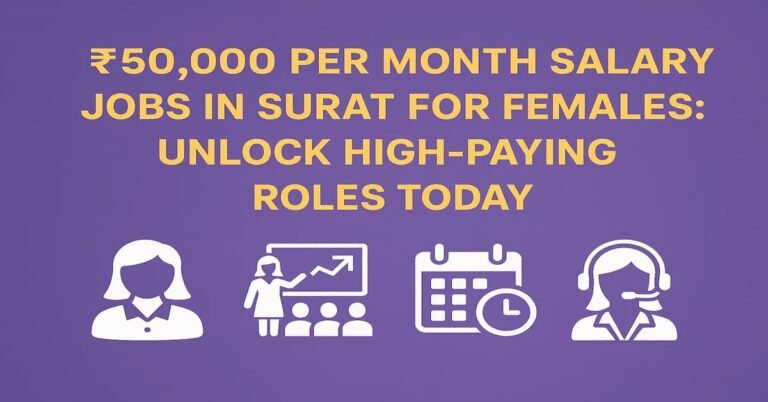The rise of remote work has created unprecedented opportunities for people to work from home. However, many are still under the impression that remote jobs require a degree or years of experience. The truth is, there are numerous entry-level remote jobs without a degree that can help you start your career, gain valuable experience, and earn a steady income, all without a formal education.
If you’re wondering how to break into the remote workforce without a degree, this guide is for you. We’ll walk you through practical steps on how to land your first remote job, the best entry-level remote positions to apply for, and tips on standing out in a competitive job market.
1. Focus on Building Skills, Not Degrees
While a degree might have been a requirement in the past, remote employers today are placing more value on practical skills than formal education. Whether you’re looking to become a virtual assistant, a social media manager, or a freelance writer, the right skill set can go a long way.
Ways to Build Skills:
- Take Online Courses: Platforms like Udemy, Coursera, and LinkedIn Learning offer affordable courses in everything from digital marketing to graphic design.
- Practice: Whether it’s learning to write, create websites, or manage social media accounts, hands-on practice is one of the best ways to learn.
- Certifications: Earning certifications in specific fields like project management, coding, or SEO can help demonstrate your knowledge to potential employers.
By acquiring new skills, you not only increase your chances of landing an entry-level remote job but also build a portfolio that proves your capabilities.
2. Search for Remote Jobs on Freelance Platforms
Freelance platforms are an excellent starting point when looking for entry-level remote jobs without a degree. These platforms allow individuals to offer their services on a contract basis, which is perfect if you’re just getting started and don’t have formal job experience.
Popular Freelance Platforms:
- Upwork: This is a great platform for beginners to find freelance writing, data entry, virtual assistance, and even more technical roles like web development and design.
- Fiverr: Ideal for starting small with services like content writing, graphic design, and social media management.
- Freelancer: Another excellent platform for finding a variety of remote jobs ranging from customer service to marketing.
Freelance platforms also allow you to build up your portfolio, gain positive reviews, and earn steady income, helping you gain credibility for landing long-term remote positions.
3. Tap Into Remote Job Boards
There are several job boards specifically dedicated to remote work, which means you don’t have to sift through job listings for traditional office positions. Many of these platforms cater to entry-level remote jobs that don’t require a degree.
Best Remote Job Boards:
- We Work Remotely: A popular job board that features entry-level remote positions across various industries such as customer service, tech, and marketing.
- Remote.co: This platform offers remote job listings from companies that emphasize flexibility and work-life balance.
- AngelList: AngelList features startup jobs, many of which are remote and open to entry-level applicants, especially in fields like marketing, customer support, and software development.
These platforms are great for those without a degree because they feature jobs that require practical skills rather than formal educational qualifications.
4. Build a Strong Online Presence
Having an online presence can significantly increase your chances of landing a remote job, especially in entry-level positions. By showcasing your skills, portfolio, and professional network, you make yourself visible to potential employers.
Key Steps to Build Your Online Presence:
- Create a LinkedIn Profile: Even without a degree, a well-optimized LinkedIn profile highlighting your skills and experience can help attract recruiters and hiring managers.
- Start a Personal Website or Blog: Create a portfolio website where you can showcase your work, whether it’s writing samples, graphic designs, or website projects.
- Social Media: Actively engaging in professional social media platforms like Twitter and LinkedIn can help you build relationships with industry experts and potential employers.
An online presence not only helps you stand out but also shows that you’re proactive and ready to work in a digital environment.
5. Apply for Entry-Level Remote Jobs That Don’t Require a Degree
There are numerous entry-level remote jobs that don’t require a degree but still provide ample opportunities for growth and development. Here are some positions you can explore:
Popular Entry-Level Remote Jobs:
- Customer Service Representative: Many companies hire remote customer service representatives who assist customers through phone, chat, or email. A high school diploma and strong communication skills are often all that’s required.
- Data Entry Specialist: Data entry jobs typically involve entering information into databases or spreadsheets. These positions require attention to detail and organizational skills but don’t often require a degree.
- Transcriptionist: Transcription jobs involve converting audio recordings into written text. This job requires fast typing and excellent listening skills.
- Online Tutor: If you excel in a subject, consider online tutoring. Many tutoring platforms require only a high school diploma, along with a subject-matter expertise.
- Content Writer or Editor: If you have a talent for writing, many businesses hire remote content writers or editors to create blog posts, articles, and web content.
- Virtual Assistant: Virtual assistants help businesses with administrative tasks like managing emails, scheduling appointments, and social media management. The demand for virtual assistants is growing rapidly, and this job typically doesn’t require a degree.
6. Network in Remote Work Communities
Networking is an essential part of landing any job, especially remote ones. Being part of remote work communities can help you connect with professionals in the field and increase your chances of finding job leads.
Networking Opportunities:
- Reddit: Subreddits like r/WorkOnline and r/RemoteWork are full of people sharing job opportunities and tips for landing remote positions.
- Facebook Groups: Many groups are dedicated to remote work and job postings. Join groups that align with your field and keep an eye on job listings.
- Slack Communities: Slack has several remote job-focused communities where you can network with other remote workers and find job leads.
By networking, you can also gain insights into the industry and learn about new remote job openings that you might not have found otherwise.
7. Customize Your Resume and Cover Letter for Remote Jobs
When applying for remote jobs, your resume and cover letter need to stand out. Customize them to highlight your remote work skills, such as your ability to communicate effectively online, manage your time, and work independently.
Tips for Crafting a Strong Resume:
- Highlight Remote-Specific Skills: Include skills such as time management, self-discipline, and proficiency with remote work tools (Zoom, Slack, Trello, etc.).
- Showcase Your Portfolio: Include a link to your online portfolio to demonstrate the work you’ve done, even if it’s freelance or personal projects.
- Tailor Your Application: Customize each resume and cover letter for the specific job you’re applying for, focusing on the skills and experience that make you a great fit.
By showcasing your strengths and remote work skills, you can increase your chances of landing an interview.
Conclusion
Landing an entry-level remote job without a degree is entirely possible if you focus on building practical skills, leveraging online job boards, and networking effectively. Remote work offers flexibility and the opportunity to work from anywhere, so take advantage of the many opportunities available. By applying to the right jobs, building an online presence, and customizing your resume, you can set yourself up for success in the remote job market.


